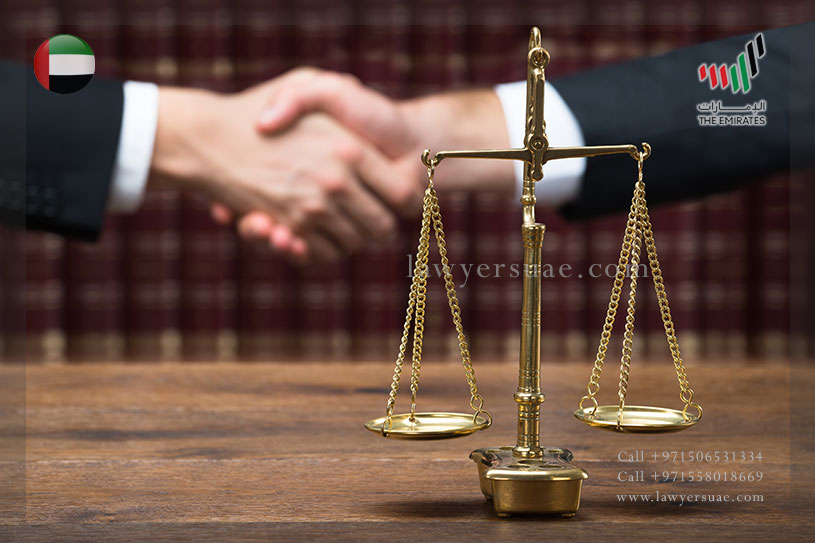The United Arab Emirates (UAE) has a dynamic and multifaceted legal system. With a combination of federal laws applicable nationwide and local laws specific to each of the seven emirates, understanding the full breadth of UAE legislation can seem daunting.
This article aims to provide an overview of key local laws across the UAE to help residents, businesses, and visitors appreciate the richness of the legal framework and their rights and responsibilities within it.
The Cornerstones of UAE’s Hybrid Legal Landscape
Several key tenets underpin the UAE’s unique legal fabric weaved from diverse influences. First, the constitution enshrines Islamic Sharia law as the fundamental legislative fountainhead. However, the constitution also established a Federal Supreme Court, whose rulings are legally binding across the Emirates.
Furthermore, each individual emirate can either assimilate local courts under the federal system or chart its independent judicial course like Dubai and Ras Al Khaimah. Additionally, selected free zones in Dubai and Abu Dhabi implement common law principles for commercial disputes.
Therefore, unraveling legislative hierarchies across federal authorities, local emirate councils, and semi-autonomous judicial zones demands considerable diligence from legal professionals and laypersons alike.
Federal Laws Hold Sway Over Local Legislations
While the constitution empowers emirates to promulgate laws around local affairs, federal legislation takes precedence in critical domains enforced through the dubai justice system like labor, commerce, civil transactions, taxation, and criminal law. Let’s explore some pivotal federal regulations more closely.
Labor Law Safeguards Employee Rights
The centerpiece of federal employment legislation is the Labor Law of 1980, which governs working hours, vacation, sick leaves, juvenile workers, and termination terms across private entities. Government employees are subject to the Federal Human Resource Law of 2008. Free zones formulate separate employment regulations aligned to their commercial focus.
Strict Drug Abuse and DUI Regulations
Alongside neighboring Gulf states, the UAE mandates stern penalties for narcotics consumption or trafficking, ranging from deportation to execution in extreme cases. The Anti-Narcotics Law delivers comprehensive guidelines around drug usage and outlines the exact drug cases penalties in UAE, while the penal code stipulates exact sentencing timeframes.
Similarly, drunk driving invites severe legal censures like jail time, license suspension and heavy fines. A unique dimension is that rare Emiriti families can procure liquor licenses, while hotels cater to tourists and expats. But there is zero tolerance towards public tipsiness.
Financial Laws Attuned to Global Standards
Robust regulations govern the UAE’s banking and financial sectors, focused on global alignment through IFRS accounting standards and stringent AML monitoring. The new Commercial Companies Law also mandates heightened financial reporting for publicly listed firms. These financial regulations intersect with uae laws on debt collection in areas like bankruptcy proceedings.
On taxation, 2018 welcomed a watershed 5% Value Added Tax for bolstering state revenues beyond hydrocarbon exports. Overall, the accent is on crafting investor-friendly legislation without compromising regulatory oversight.
What Social Laws Should You Know?
Beyond commerce, the UAE decree important social legislations around ethical values like integrity, tolerance and modest public conduct as per Arab cultural ethos. However, enforcement protocols are executed discretely to sustain the UAE’s cosmopolitan fabric. Ensuring women safety in UAE is an important aspect of these social laws. Let us explore some key areas:
Restrictions Around Relationships and PDA
Any romantic relationships outside formal wedlock are legally prohibited and can entail harsh sentences if found out and reported. Similarly, unmarried couples cannot share private spaces while visible public displays like kissing are taboo and fined. Residents must be cautious regarding romantic gestures and clothing choices.
Media and Photography
There are limits around photographing government establishments and military sites while sharingimages of local women online without their consent is banned. Broadcasting critique of state policies on public platforms is also legally dicey, although measured columns are permitted.
Respecting Local Cultural Values
Despite the glitzy skyscrapers and leisure lifestyle, the Emirati population upholds traditional Islamic values around modesty, religious tolerance and family institutions. As such, all residents must avoid public exchanges around controversial issues like politics or sexuality that can offend native sensibilities.
Which Local Laws Should You Follow?
While federal authority rightly captures headlines, many crucial aspects around living conditions and ownership rights are codified through local laws in each Emirate. Let’s analyze some areas where regional legislations hold force:
Liquor Licenses Valid Only Locally
Procuring an alcohol license requires valid tenancy permits proving residency in that particular Emirate. Tourists get temporary one-month clearances and must respect strict protocols around drinking designated venues and sober driving. Emirate authorities can levy penalties for violations.
Onshore and Offshore Corporate Regulations
Mainland companies across Dubai and Abu Dhabi answer to federal ownership laws capping foreign stakes at 49%. Meanwhile, speical economic zones provide 100% overseas ownership yet prohibit trading locally without a local partner holding 51% equity. Understanding jurisdictions is key.
Local Zoning Laws For Real Estate
Every Emirate demarcates zones for commercial, residential and industrial realty. Foreigners cannot purchase freehold buildings in locations like Burj Khalifa or Palm Jumeirah, while selected township developments are available on 99-year leases. Seek professional counsel to avoid legal pitfalls.
Local Laws in the UAE
The UAE has a dualistic legal system, with powers divided between federal and local institutions. While federal laws issued by the UAE legislature cover areas like criminal law, civil law, commercial law and immigration, individual emirates have the authority to develop local laws addressing social, economic and municipal affairs unique to that emirate.
As such, local laws vary across Abu Dhabi, Dubai, Sharjah, Ajman, Umm Al Quwain, Ras Al Khaimah and Fujairah – the seven emirates that comprise the UAE. These laws touch on aspects of daily life like family relationships, land ownership, business activities, financial transactions and civic behavior.
Accessing Local Laws
The official gazettes and legal portals of the respective emirates provide the most up-to-date versions of laws. Many now have English translations available. However, the Arabic text remains the legally binding document in case of disputes over interpretation.
Professional legal advice can help navigate the nuances, especially for major undertakings like establishing a business.
Key Areas Governed by Local Laws
While specific regulations vary, some common themes emerge in local laws across the seven emirates:
Commerce and Finance
Free zones in Dubai and Abu Dhabi have their own regulations, but local laws in each emirate cover mainstream licensing and operating requirements for businesses. For instance, Decree No. 33 of 2010 details the special framework for firms in Dubai’s financial free zones.
Local laws also address aspects of consumer protection. Ajman’s Law No. 4 of 2014 lays down rights and obligations for both buyers and sellers in commercial transactions.
Property and Land Ownership
Given the complexity of establishing title in the UAE, specialized property registration and land management laws help streamline the process. For example, Law No. 13 of 2003 created Dubai’s Land Department to oversee these matters centrally.
Local tenancy laws also provide dispute resolution mechanisms for landlords and tenants. Both Dubai and Sharjah have issued special regulations protecting tenant rights.
Family Affairs
The UAE allows each emirate to specify rules governing personal status issues like marriage, divorce, inheritance and child custody. For example, Ajman Law No. 2 of 2008 regulates marriage between Emiratis and foreigners. These laws apply to citizens and residents.
Media and Publications
Free speech protections under local laws balance creating responsible media with curbing false reporting. For instance, Decree No. 49 of 2018 in Abu Dhabi allows authorities to block digital sites for publishing inappropriate content.
Infrastructure Development
Several northern emirates like Ras Al Khaimah and Fujairah have passed local laws to enable large-scale investments in tourism projects and industrial zones. These provide targeted incentives to attract investors and developers.
Deciphering Local Laws: A Cultural Context
While textually parsing local laws may reveal the technical letter of the law, truly appreciating their role requires understanding the cultural ethos underpinning them.
As home to largely traditional Islamic societies undergoing rapid economic development, the UAE deploys local laws to calibrate both objectives. The ultimate objective is crafting a cohesive socio-economic order that balances modernity with heritage.
For instance, Dubai’s laws permit alcohol consumption but strictly regulate licensing and drunk behavior due to religious strictures. Codes of conduct preserve local cultural sensitivities even as the emirates integrate with global community.
Thus local laws encode the social contract between the state and residents. Abiding by them demonstrates not just legal compliance but also mutual respect. Flouting them risks eroding the harmony holding this diverse society together.
Local Laws: A Sampling Across the Emirates
To illustrate the diversity of local laws found across the seven emirates, here is a high-level sampling:
Dubai
Law No. 13 of 2003 – Established the specialized Dubai Land Department and associated processes for cross-border property transactions, registration and dispute resolution.
Law No. 10 of 2009 – Addressed rising tenant-landlord disputes through creating a housing dispute center and specialized tribunal. Also outlined grounds for evictions and protections against unlawful seizure of property by landlords among other provisions.
Law No. 7 of 2002 – Consolidated regulations governing all aspects of road usage and traffic control in Dubai. Covers driving licenses, roadworthiness of vehicles, traffic violations, penalties and adjudicating authorities. RTA establishes further guidelines for implementation.
Law No. 3 of 2003 – Restricts liquor licenses to hotels, clubs and designated areas. Bans serving alcohol without license. Also prohibits buying alcohol without license or drinking in public places. Imposes fines (upto AED 50,000) and jail (upto 6 months) for violations.
Abu Dhabi
Law No. 13 of 2005 – Establishes a property registration system for documenting title deeds and easements in the emirate. Allows electronic archiving of deeds, facilitating faster transactions like sales, gifts and inheritance of real estate.
Law No. 8 of 2006 – Provides guidelines for zoning and usage of plots. Classifies plots as residential, commercial, industrial or mixed-use. Sets approval process and planning standards for construction and infrastructure development across these zones. Helps formulate masterplans reflecting desired economic priorities.
Law No. 6 of 2009 – Creates Higher Committee for Consumer Protection tasked with spreading awareness about consumer rights and commercial obligations. Also empowers committee to force recalls of defective goods, ensure transparency of commercial information like item labels, prices and warranties. Strengthens protections against fraud or misinformation.
Sharjah
Law No. 7 of 2003 – Caps maximum rent increases at 7% per annum if rent under AED 50k per year, and 5% if over AED 50k. Landlords must provide 3 months notice before any increase. Also restricts reasons for eviction, assuring tenants 12 months of extended occupancy even after contract termination by landlord.
Law No. 2 of 2000 – Prohibits establishments from operating without trade license covering specific activities they conduct. Lists authorized activities under each category of license. Bans issuing licenses for businesses deemed objectionable by authorities. Imposes fines upto AED 100k for violations.
Law No. 12 of 2020 – Classifies all roads in Sharjah into main arterial roads, collector roads, and local roads. Includes technical standards like minimum road widths and planning protocols based on projected traffic volumes. Helps meet future mobility requirements.
Ajman
Law No. 2 of 2008 – Outlines prerequisites for Emirati men to marry additional wives, and for Emirati women to marry non-citizens. Requires providing housing and financial security for existing wife before seeking consent for additional marriage. Sets age criteria.
Law No. 3 of 1996 – Allows municipal authorities to compel owners of neglected plots of land to develop them within 2 years, failing which, allows authorities to assume custodianship and auction rights for the plot through public tender starting at a reserve price equal to 50% of estimated market value. Generates tax revenue and enhances civic aesthetics.
Law No. 8 of 2008 – Empowers municipal authorities to ban sale of goods deemed offensive to public order or local values. Covers publications, media, clothing, artifacts and performances. Fines for violations upto AED 10,000 depending on severity and repeat offences. Helps shape commercial environment.
Umm Al Quwain
Law No. 3 of 2005 – Requires landlords maintain properties fit for occupation. Tenants must help maintain fixtures. Caps security deposit at 10% of annual rent. Limits rent increases to 10% of existing rate. Assures tenants of contract renewal unless landlord requires property for personal use. Provides for speedy resolution of disputes.
Law No. 2 of 1998 – Bans importing and consuming alcohol in the emirate in keeping with local cultural norms. Offenders face upto 3 years in jail and substantial monetary fines. Pardon is possible for first-time offence if expatriates. Sells confiscated alcohol to benefit the state treasury.
Law No. 7 of 2019 – Permits municipal authorities to grant temporary one-year licenses for commercial activities deemed useful by the emirate. Covers vocations like mobile vendors, handicraft sellers and car washes. Can be renewed subject to adherence to license conditions around permitted timing and locations. Facilitates microenterprise.
Ras Al Khaimah
Law No. 14 of 2007 – Outlines organization of wage protection system including requirements like electronic salary transfer and recording employment contracts on Ministry of Human Resources and Emiratisation systems. Ensures transparency of worker salaries and curb labor exploitation.
Law No. 5 of 2019 – Allows Department of Economic Development to cancel or suspend commercial licenses if licensees are convicted of crimes related to honor or honesty. Includes financial misappropriation, exploitation and deception. Upholds integrity in business dealings.
Law No. 11 of 2019 – Sets speed limits on different roads like maximum 80 km/h on two lane roads, 100 km/h on main highways and 60 km/h in parking areas and tunnels. Specifies violations like tailgating and jumping lanes. Imposes fines (upto AED 3000) and black points for violations with potential license suspension.
Fujairah
Law No. 2 of 2007 – Provides incentives for hotels, resorts, housing and heritage sites development including allocating government land, facilitating finance and customs duty relief on imported fixtures and tools. Catalyzes tourism infrastructure.
Law No. 3 of 2005 – Bans transporting or storing over 100 liters of alcohol without license. Imposes fines from AED 500 upto AED 50,000 depending on violations. Jail for up to one year for repeat offences. Drivers under influence face imprisonment and vehicle confiscation.
Law No. 4 of 2012 – Protects agent distributor rights within the emirate. Bans suppliers from circumventing contracted local commercial agents by marketing directly to local customers. Supports local traders and ensures pricing control. Breaches attract court-ordered compensation.
Deciphering Local Laws: Key Takeaways
In summary, while navigating the breadth of UAE legislation can seem challenging, paying attention to local laws reveals the richness of this federal system:
- The UAE constitution empowers each emirate to issue regulations addressing unique social circumstances and business environments found within its territory.
- Central themes include streamlining land ownership, licensing commercial activities, protecting consumer rights and funding infrastructure development.
- Understanding the interplay between modernization goals and preserving socio-cultural identity is key to decoding the rationale underpinning specific local laws.
- Residents and investors should research laws specific to the emirate in which they intend to operate, rather than assuming uniformity of legislation nationwide.
- Official government gazettes provide authoritative texts of laws and amendments. However, legal consultation is advisable for proper interpretation.
The UAE’s local laws remain a continually evolving instrument aimed at forging an equitable, secure and stable society anchored around Arab customs but integrated with the global economy. While federal legislation defines the overall framework, appreciating these local nuances enriches one’s understanding of this dynamic nation.


